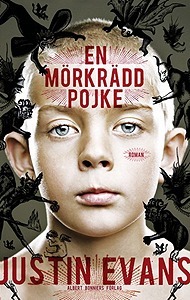What do you think?
Rate this book


369 pages, Hardcover
First published January 1, 2007
Because of the misspelling I knew it was not Dean, but more likely one of the hicks—the ominous Tex with the patch over one eye from a firewood-chopping accident, or his sidekick, the malnourished, scrawny J. J. Sweet, a pale boy in the ill-fitting clothes of the dirt poor who walked his phlegmatic, retarded sister to school every day.
“And your school?" he asked.
"I hate school."
"Of course you do," he said. "The school system has been ruined.
Full of blacks and little inbred creatures from the county."
My eyes widened.
"Well, isn't it?" he said.
"I guess so."
"Of course it is," he said. "The civil rights movement destroyed education in this country. They had to chaaange the curriculum so that the little blacks would be able to get As, and they ruined it for everybody. The intelligent students fled for private schools, and the teachers they brought in were more ignorant blacks. And now it's just a godawful mess."